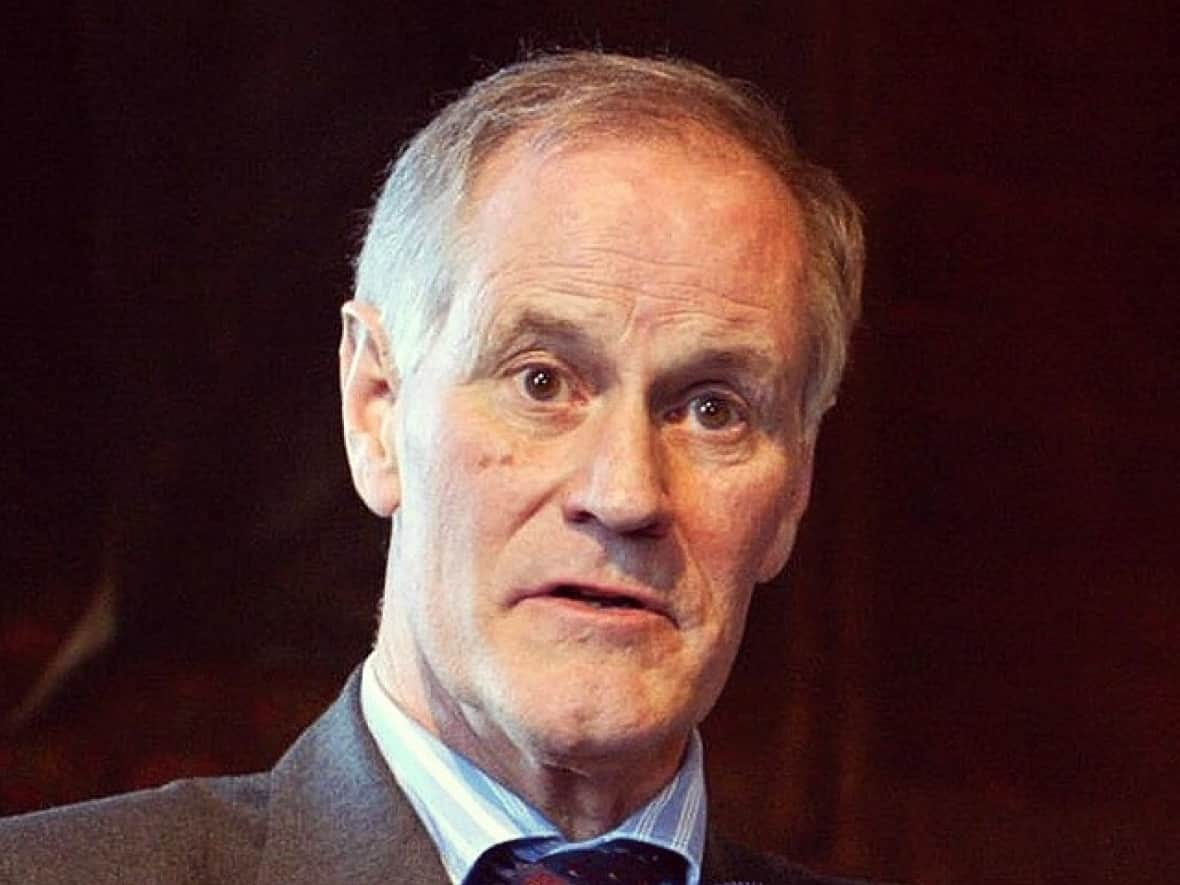Bill Graham, a former defence and foreign affairs minister, has died

Former cabinet minister Bill Graham has died. He was 83.
Graham served as minister of foreign affairs under prime minister Jean Chrétien in 2002 and was later appointed minister of national defence under prime minister Paul Martin in 2004.
Graham acted as foreign affairs minister when Canada decided against joining the U.S. invasion of Iraq in 2003, and helped guide the nation through the post-9/11 era.
He also served as leader of the opposition and interim leader of the Liberal Party in 2006.
He was the member of Parliament for Toronto Centre, known as Toronto Centre—Rosedale during much of his time in politics. He was first elected to Parliament in 1993 before stepping away from public service in 2007.
Prime Minister Justin Trudeau said in a tweet that few others personified public service quite like Graham.
In a statement, Martin said he and his wife were sorry to hear the news, noting he met Graham in law school.
The former prime minister said funding was reinvested to the armed forces under the guidance of Graham, and that he helped the government navigate a challenging period of history as Canada's military deployed into Kandahar in Southern Afghanistan.
"His loss will be felt by all who knew or worked with him," Martin said. "Sheila and I send our deepest condolences to his wife Cathy, his children, Katy and Patrick and his beloved grandchildren."
'Gentleman in the rough and tumble world of politics'
In his own statement, Chrétien called Graham "a true gentleman in the rough and tumble world of politics."
"His optimism, with a healthy dose of realism, were his trademarks inside caucus, the Cabinet room and on the world stage. His voice will be missed," Chrétien said.
Ralph Goodale, who worked as finance minister alongside Graham, called him a decent man in every respect, especially in matters of foreign policy and defence.
Goodale — who was persuaded by Graham to accept a $13-billion increase in defence spending — said he was an optimist who tried to see the best in people.
"Bill understood the complexities and the sinkholes of international politics, and sought to position Canada in constructive and practical ways to help build a fairer and safer world," Goodale said by email.
"In an era of deep polarization and extremist populism, Bill's sense of moderation, propriety and balance is sorely missed. Our love and respect surround his family, friends and colleagues."
Former prime minister Stephen Harper also offered kind words about the man who once stood across from him in the House of Commons.
"Bill Graham was the first Leader of the Opposition I had when I was prime minister," Harper said in a statement.
"Even while a determined opponent, Bill was always a gentleman, and he always kept the best interests of the country in mind. Our thoughts and prayers are with his family."
WATCH | Graham held defence and foreign ministry portfolios after 9/11:
Retired general Rick Hillier worked with Graham after Hillier became chief of the defence staff in 2005.
"I am so sorry to hear the news of Minister Graham's passing," he said. "He was a proud Canadian, an astute politician and a minister of defence who understood the urgent need to rebuild the Canadian Forces and dedicated himself to that mission.
"He was a pleasure to support as [chief of the defence staff], and had my respect and admiration. He was also a man of his word and esteemed in the eyes of all those with whom he worked or associated."
Hillier called Canada a lesser country today without Graham.
Former Liberal MP John McKay called Graham an "immensely smart, decent, classy man" and that he was the obvious choice for many to become the Liberal interim leader.
George Smitherman, who represented the same downtown Toronto area for the Liberals provincially as Graham had federally, said Graham had a remarkable way of connecting with people, no matter their background.
Smitherman, who is gay, said he first arrived in what is now known as Toronto Centre as a kid finding comfort with his sexuality and at the time Graham and the local Liberals had embedded AIDS activism in their politics.
"That, to me, was one of the most defining attributes of the way political parties ought to operate," Smitherman said.
"It was really a huge impact on me in my life."
In January 2002, months after the 9/11 terrorist attacks shook the world, Graham was appointed to serve as foreign affairs minister.
At that time, Canada had to decide whether to join the U.S.-led invasion of Iraq and then navigate its relationship with its closest ally when it opted against doing so.
Graham was roundly praised for not only assisting in that decision, but for his overall handling of the role at a turbulent time in international relations.
"He was an outstanding minister of foreign affairs and a skilled parliamentarian," tweeted John Baird, who served as foreign affairs minister under former Conservative prime minister Stephen Harper.
Eugene Lang, once Graham's chief of staff, said he was well-liked by most everyone, including MPs of different political stripes.
Lang said while Graham was only in the role of national defence minister for less than two years, he had many accomplishments.
In a tweet, Transport Minister Omar Alghabra called Graham "my friend and mentor."
"He was a giant in Canadian and international politics," Alghabra said. "He wore his love for Canada on his sleeve. My condolences to his family."


